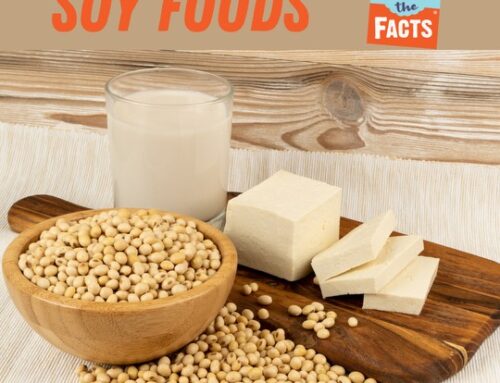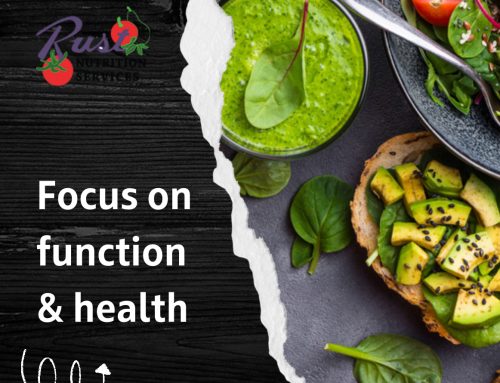I posted an article last week about the current sponsorships of the Academy of Nutrition and Dietetics, my professional organization. It received a lot of feedback, primarily positive. One issue that came up in the comment section was the idea of “conflict of interest”. This individual seemed to accuse me of having a “perceived” conflict of interest, since some of the work I do includes consultation to the American Beverage Association and the Corn Refiner’s Association.
I imagine that this comment was considering the legal definition for conflict of interest, which implies that I would be acting contrary to my professional obligation to the public to provide sound nutrition advice, and doing so for personal gain. False.
For the record, I happened to write an article about high fructose corn syrup for my local newspaper several years ago, prior to even knowing what the Corn Refiner’s Association (CRA) was. As a result of my professional opinions described in that article, I received an offer to become a consultant for the CRA, helping them communicate clear nutrition messages to the public. Since I’m a natural writer, and am passionate about communicating the facts, I was thrilled to have this opportunity. (Prior to consulting with these particular companies, I never avoided foods that have high fructose corn syrup on the label, and we’ve always kept a variety of diet and regular sodas in the spare refrigerator for special occasions and road trips. I’ve bought bottled water and flavored waters for many years, particularly while having teenagers in the house. My behaviors have not changed after accepting these positions.)
I am very passionate about sharing ways to live a well-balanced life, which for me includes regular exercise, healthy eating, and time off spent with family and friends. I am passionate about helping people understand that a healthy diet is attainable, and that, yes, it may even include occasional treats such as a candy bar, soda, or potato chips! To me, “healthy eating” doesn’t exclude certain foods, but it does include certain foods. For example, your pork rinds may be my brother’s Mortadella – both really high in fat, and not something you should eat every day – while not my personal preference, if you love it, then we can find a way to include it in your diet once in a while, and still mange your health.
Can this advice coincide with the advice to eat more fresh vegetables and fruits, reduce your sodium intake, and consume less saturated fat (evidence-based dietary guidelines)? Yes!
My corporate clients have not skewed my thoughts about what I choose to purchase at the grocery store, feed myself, or feed my family. More importantly, as my disclosure states, I will not choose to work for a company in which my views are not already aligned: Common sense applies. I am a nutrition professional. I do not recommend that you eat cake for breakfast (except perhaps, the day after your birthday) but:
- I have not, nor will I, recommend that you drink a soft drink with every meal or even daily. I don’t, on the other hand, believe that you should never consume them if you want to have any sort of health.
- I do not recommend that you eat a large candy bar or a big bag of cotton candy every day. I do think that you can include small portions of sweets like this from time to time and still maintain health, if you balance them with nutritious foods and exercise.
- Real food first. I’ve never met a dietitian who doesn’t recommend eating whole food first. The basic food group guide still holds true – fruits and veggies, bread, rice, grains, pasta, protein (meats, poultry, beans, tofu, nuts). Once you’ve satisfied your need for nutrients, then it’s time to decide how many “extras” or “treats” can fit. I “treat” myself every day.
- Finally, whatever you choose to consume, proper nutrition advice really needs to individualized. A registered dietitian visit is your best bet to get this advice. Perhaps you can consume 12 ounce soft drink every day and still remain in good health? It certainly depends on all of the other foods and beverages you consume, your current health or disease risk, and the activity you get daily. Would this be the healthiest habit? As I said, real food first.
I will continue my work as a writer and nutrition communications consultant because I truly enjoy it. I’m also going to continue challenging the ideas of people who demonize food and put registered dietitians in the sole role of “food police”; a role which I surely never signed up for, nor do I identify with.





Rosanne, as the author of that comment I’ll happily spell it out more clearly as rather than ask what I was getting at, you chose to try to guess at that.
When you wrote about corporate sponsorships and FNCE I believe you were most assuredly conflicted. Being conflicted doesn’t in fact necessitate you have any ulterior motives, or writing on anyone else’s behalf, but the fact that part of your livelihood is made through your work with organizations that in turn have deeply vested interests in maintaining the current status quo of being corporate sponsors of conferences like FNCE is in fact something that would be important to disclose to readers in the article itself (and yes, I do realize that if they click around your site they can find out, but that’s not the same thing as an open disclosure).
Because it’s difficult to read tone in comments I can assure you I’m writing this without malice, sarcasm, frustration or anger, and I would invite you, if you think I’m out to lunch, to chat with an ethicist about conflicts and disclosures. An easily reachable one might be @ethicsblogger who I will invite to have a peek at this post once you’ve posted my comment and perhaps he can weigh in with his more educated than both of us’ thoughts.
Happy to help, if I can.
A few quick technical points…
It is *always* important to remember that conflict of interest is not a question of personal integrity. A person of impeccable integrity can be in a COI just as easily as a scoundrel can. That’s why we *worry* about COI — because it’s a situation anyone can encounter, and the influence of ‘outside’ interests is something anyone can be subject to.
As a result, it is also important to keep in mind that conflict of interest is not an accusation. It’s not an offence, but rather a situation or a context. Here’s a definition:
“We can define a conflict of interest as a situation in which a person has a private or personal interest sufficient to appear to influence the objective exercise of his or her official duties as, say, a public official, an employee, or a professional.”
http://chrismacdonald.ca/resources/conflict-of-interest-a-basic-coi-toolkit/
While COI is in part about perception, it’s important to distinguish “apparent” and “potential” COI. An apparent COI is one where an outsider who doesn’t understand the situation fully would think there’s a COI, but there probably isn’t. A potential COI is where a situation has the potential to evolve into a COI.
It’s also worth considering that COI isn’t a global characteristic of an individual, but applies to a particular decision or role. “Is this person in a COI with regard to THIS decision or THIS bit of advice?”
Finally, whether (and how much) disclosure is necessary in any particular situation is a hard problem, one that can really only be sorted out by a) professional standards and b) the kind of debate you’re currently having in the comments section of this blog!
Chris
Thanks Yoni, I respect your passion, and know you are writing without malice. We disagree, or perhaps have a different perspective, on the FNCE/Sponsorship issue, and that’s okay. Thanks for reading, and for your comments!
Thanks for your input Chris! COI seems to have some gray areas that are open to personal perception/interpretation. I’m glad you distinguish COI and integrity.
Rosanne, Thanks for so clearly communicating how your nutrition philosophy and working with industry can be ethical and done with integrity. It expresses my sentiments exactly. As I’ve said for most of my 30+ career as a dietitian, “there are no good foods and bad foods, only good and bad diets.” One food or ingredient doesn’t make or break your diet, cause weight gain or any disease or health condition. Unfortunately, there are many armed with misinformation gained from media stories. I work with industry, like you, not to promote unhealthy eating but to get the scientific facts out to people so they can enjoy eating and not feel guilty. There are plenty of nutrient-rich foods that people are avoiding like beef, eggs and dairy due to scary headlines. Thanks for trying to put what we do in the proper perspective.